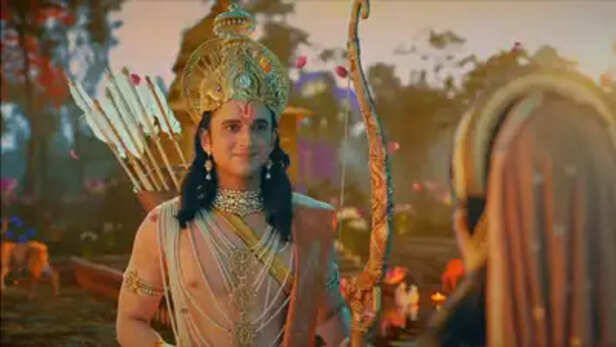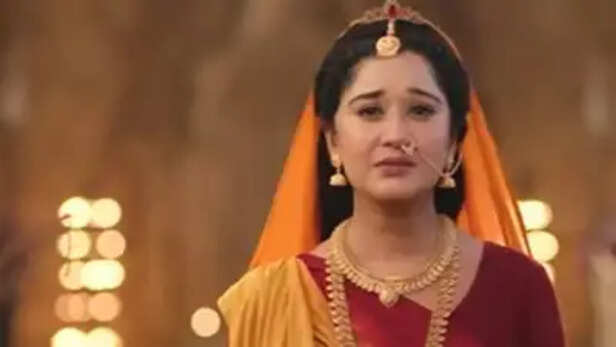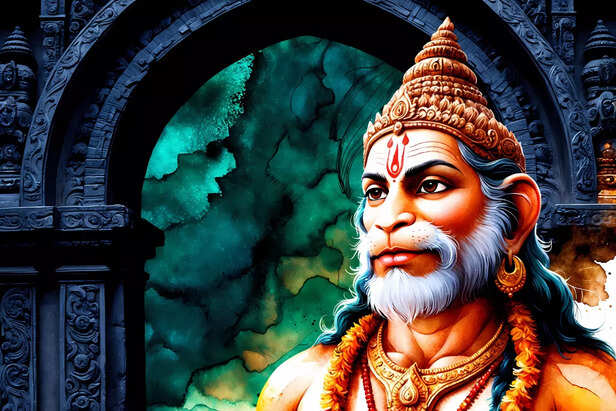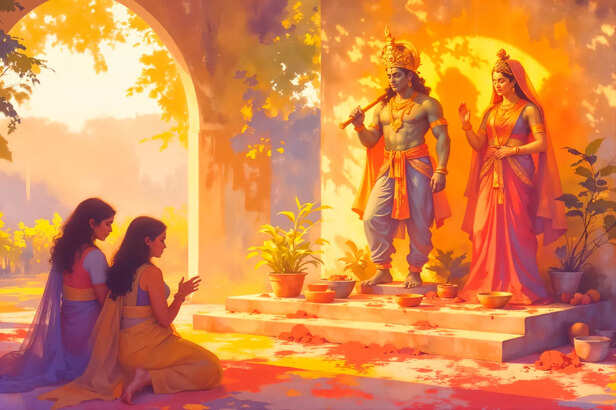Ramayan Wasn’t About War. It Was About Choosing Duty Over the People You Love
Noopur Kumari | Jun 13, 2025, 12:00 IST
( Image credit : Times Life Bureau, Timeslife )
We were told Ramayan was about a war. But was it? What if it were about a man breaking his heart to honour promises? About a woman who chose dignity over comfort? About brothers who gave up their dreams for love? This isn't mythology—it's us. Every time we select responsibility over love, a silent Ramayan unfolds. Read this, and you’ll never see Ram the same again.
I always thought Ramayan was just an epic of gods, demons, and a mighty war. But one evening, everything changed. I was watching an old Ramayan rerun with my father. Suddenly, I noticed tears silently rolling down his cheeks. Surprised, I asked, "Why are you crying? You know the whole story." He smiled sadly and replied, "Because it’s not about the war. It’s about what a man gives up when he chooses duty over love."That one sentence shifted my entire perspective. Ramayan was no longer just mythology—it was a mirror to the hidden grief behind every selfless choice. It made me see Ram not as a distant deity, but as a man torn by impossible decisions. It made me feel Sita’s strength not as dramatic, but deeply personal. This epic is not just a story from ancient times. It’s in the life of every person who has ever placed responsibility before desire, who has quietly let go of their heart’s deepest wish for the sake of someone else. Ramayan is not about divine powers. It’s about the human cost of keeping promises. And in that moment with my father, I realised—it’s not just their story. It’s ours too.

As a child, I believed Ram fought Ravan because he was the villain. But growing up taught me something deeper. Ravan was just a reflection—the real war was inside Ram himself. With every vow he made as a son, husband, and king, Ram built a wall between his heart and his duty. Each arrow he released wasn’t just aimed at Ravan—it was aimed at the aching in his chest. Sometimes, doing the right thing doesn’t feel right at all—it just feels like breaking your own heart.

Imagine being rescued from captivity, only to be asked to prove your purity. That was Sita’s reality. But her choice to walk through fire wasn’t submission—it was rebellion. She didn’t need to prove herself to anyone. She chose agni pariksha to make a statement: she would not live in a world that questioned her dignity. I remember my mother, after a painful argument, quietly packing her bags. She said, “I don’t need much—just respect.” In that moment, she became Sita to me. The fire wasn’t her trial. It was her power.

We often see Lakshman as the ideal younger brother, but we overlook the man behind the loyalty. He had just married, had dreams of his own, yet chose to leave it all behind for 14 years. Not because he was forced, but because love made duty sweeter. I remember missing a career-changing interview to stay with my sister during her surgery. Nobody clapped, no headlines followed. But our bond deepened that day. That’s Lakshman’s love—silent, strong, and selfless.

Not every brother would turn down a kingdom placed at his feet. But Bharat did. He didn’t see power as an opportunity—he saw it as betrayal. In an act of profound love and humility, he placed Ram’s slippers on the throne and ruled Ayodhya in his name. I once had a bitter argument with my sibling, but thinking of Bharat reminded me: you can disagree and still choose love. In a world that often chases position, Bharat chose emotion. He didn’t want the throne—he wanted his brother home.

This part shatters me every time. Ram’s love for Sita never faded, but the echo of his people’s doubts became unbearable. Rather than risk their trust, he carried the burden alone. I once let go of someone I deeply loved because my family couldn't accept them. It tore me apart, but it made me see Ram not as a flawless god, but as a human, flawed, torn, and trying to do right by everyone, even at the cost of his own heart.

Hanuman could have been worshipped during Ramayana. But he chose humility. Even when he moved mountains, he never asked for credit. I met a teacher once who said, "The best work is the work you do when no one is watching." That’s Hanuman’s soul. A reminder that being seen is not as important as being sincere.

Ramayan isn’t a book on a shelf. It’s the father who skips his meal so his daughter can study. The mother who sells her jewellery for her son’s dream. The sister who gives up her share of the property. The friend who forgives. The lover who lets go. Ramayan isn’t about gods. It’s about us—when we put duty above desire and love above ego.
Ramayan isn’t meant to glorify pain. It’s meant to show us that even the most divine suffer when they do the right thing. And that is what makes them divine. We all carry a little Ram inside us when we sacrifice silently, when we stay true to our word, even when it hurts.
So the next time you feel broken after doing the right thing, remember Ram. He didn’t smile through his journey. He bled, cried, broke, and still walked on. Because sometimes, love isn’t holding on. Sometimes, love is letting go—for the sake of something bigger.
Na yudh tha, na vijay thi,
Sirf har dil mein ek kasak thi.
Jo chhod aaye apne khud ke armaan,
Wahi kahani thi Ramayan."
Explore the latest trends and tips in Health & Fitness, Travel, Life Hacks, Fashion & Beauty, and Relationships at Times Life!
1. Ram Didn’t Fight Ravan for Glory. He Fought to Keep a Promise.

ram
( Image credit : Times Life Bureau )
As a child, I believed Ram fought Ravan because he was the villain. But growing up taught me something deeper. Ravan was just a reflection—the real war was inside Ram himself. With every vow he made as a son, husband, and king, Ram built a wall between his heart and his duty. Each arrow he released wasn’t just aimed at Ravan—it was aimed at the aching in his chest. Sometimes, doing the right thing doesn’t feel right at all—it just feels like breaking your own heart.
2. Sita Chose Fire Over a Life Without Respect

Sita
( Image credit : Times Life Bureau )
Imagine being rescued from captivity, only to be asked to prove your purity. That was Sita’s reality. But her choice to walk through fire wasn’t submission—it was rebellion. She didn’t need to prove herself to anyone. She chose agni pariksha to make a statement: she would not live in a world that questioned her dignity. I remember my mother, after a painful argument, quietly packing her bags. She said, “I don’t need much—just respect.” In that moment, she became Sita to me. The fire wasn’t her trial. It was her power.
3. Lakshman Didn’t Just Follow Ram. He Let Go of His Dreams

Shrimad Ramayan
( Image credit : Times Life Bureau )
We often see Lakshman as the ideal younger brother, but we overlook the man behind the loyalty. He had just married, had dreams of his own, yet chose to leave it all behind for 14 years. Not because he was forced, but because love made duty sweeter. I remember missing a career-changing interview to stay with my sister during her surgery. Nobody clapped, no headlines followed. But our bond deepened that day. That’s Lakshman’s love—silent, strong, and selfless.
4. Bharat Refused the Crown Because Love Mattered More

Bharat
( Image credit : Times Life Bureau )
Not every brother would turn down a kingdom placed at his feet. But Bharat did. He didn’t see power as an opportunity—he saw it as betrayal. In an act of profound love and humility, he placed Ram’s slippers on the throne and ruled Ayodhya in his name. I once had a bitter argument with my sibling, but thinking of Bharat reminded me: you can disagree and still choose love. In a world that often chases position, Bharat chose emotion. He didn’t want the throne—he wanted his brother home.
5. Ram Sent Sita Away—Not Because He Didn’t Love Her

Ram Sent Sita
( Image credit : Times Life Bureau )
This part shatters me every time. Ram’s love for Sita never faded, but the echo of his people’s doubts became unbearable. Rather than risk their trust, he carried the burden alone. I once let go of someone I deeply loved because my family couldn't accept them. It tore me apart, but it made me see Ram not as a flawless god, but as a human, flawed, torn, and trying to do right by everyone, even at the cost of his own heart.
6. Hanuman Chose Service Over Recognition

Hanuman
( Image credit : Freepik )
Hanuman could have been worshipped during Ramayana. But he chose humility. Even when he moved mountains, he never asked for credit. I met a teacher once who said, "The best work is the work you do when no one is watching." That’s Hanuman’s soul. A reminder that being seen is not as important as being sincere.
7. Ramayan Lives Within Every Sacrifice We Make Silently

Ramayan
( Image credit : Freepik )
Ramayan isn’t a book on a shelf. It’s the father who skips his meal so his daughter can study. The mother who sells her jewellery for her son’s dream. The sister who gives up her share of the property. The friend who forgives. The lover who lets go. Ramayan isn’t about gods. It’s about us—when we put duty above desire and love above ego.
We All Are Ram in Some Moments, and Ravan in Others
So the next time you feel broken after doing the right thing, remember Ram. He didn’t smile through his journey. He bled, cried, broke, and still walked on. Because sometimes, love isn’t holding on. Sometimes, love is letting go—for the sake of something bigger.
Na yudh tha, na vijay thi,
Sirf har dil mein ek kasak thi.
Jo chhod aaye apne khud ke armaan,
Wahi kahani thi Ramayan."
Explore the latest trends and tips in Health & Fitness, Travel, Life Hacks, Fashion & Beauty, and Relationships at Times Life!
